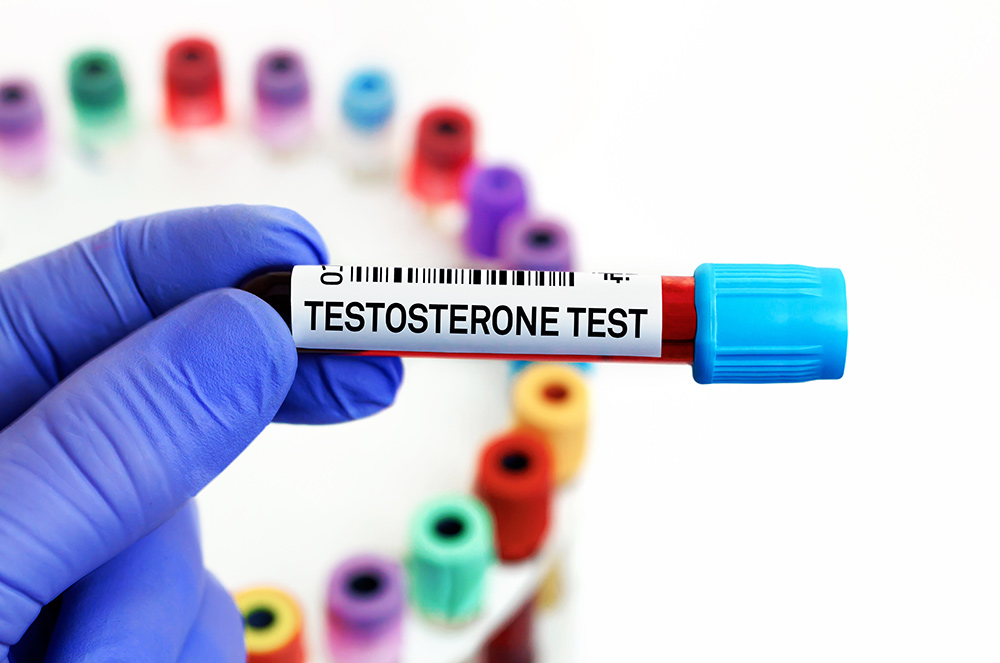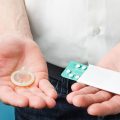Table of Contents
ToggleUnderstanding the Link Between Vasectomy, Hormones and Sexual Health
When men start considering a vasectomy, one of the first questions that often comes up is: Does a vasectomy affect testosterone levels? As testosterone plays such an important role in energy, sex drive and overall health, it is natural for men to be cautious about any procedure that might impact it.
This latest blog post explores the relationship between vasectomy and testosterone, looks at what medical research shows and addresses common concerns about sexual function after the procedure. By the end, you will have a clear understanding of what a vasectomy does and does not change.
What Is Testosterone and Why Is It Important?
Testosterone is the key male sex hormone, responsible for much more than just fertility. It supports:
- Muscle development and strength
- Bone density
- Sex drive and sexual performance
- Sperm production
- Energy, concentration and mood
When testosterone levels are too low, men may experience fatigue, reduced libido and changes in body composition. Understanding how vital testosterone is helps explain why many men want clarity before deciding on a vasectomy.

Testosterone is produced in the testicles and released into the bloodstream, unaffected by vasectomy.
Does a Vasectomy Affect Testosterone Levels?
Extensive research has examined whether vasectomy changes hormone levels, and the evidence is consistent. Published studies have found no significant difference in testosterone before and after vasectomy.
The reason is straightforward. Testosterone is produced in the testicles and released directly into the bloodstream. A vasectomy only blocks a part of the vas deferens, the tubes that transport sperm and does not interfere with hormone production or circulation.
Vasectomy and Testosterone: Why the Worry Exists
Despite the medical evidence, concerns about testosterone persist. This often comes from confusion about the role of the testicles. As they produce both sperm and hormones, it is easy to assume that blocking sperm could also affect hormone output. In reality, sperm transport and hormone production are entirely separate functions. The vas deferens only carries sperm, while testosterone production remains unaffected.
Sexual Function After Vasectomy: What to Expect
Questions about sexual function are just as common as concerns about testosterone. The good news is that vasectomy does not interfere with erections, libido, or sexual satisfaction. Hormone levels remain steady, and the physical pathways responsible for erections and arousal are unchanged. Many couples even report greater ease in intimacy after vasectomy, as the worry about unintended pregnancy is removed.
Is Sex Painful After a Vasectomy?
Sex itself is not painful once recovery is complete. In the days following surgery, some tenderness, swelling, or bruising may occur, which is normal and short-term. Attempting sexual activity before healing is finished may cause discomfort, so following recovery guidance from the clinic is important.

Clinical studies confirm that hormone levels remain stable before and after vasectomy.
Libido and Erections After Vasectomy
Libido depends on healthy testosterone levels, and erections are controlled by blood flow, nerve signals and psychological factors. Since vasectomy does not alter any of these, men can expect no difference in arousal or erectile function. Semen volume also remains the same, with the only change being the absence of sperm. The experience of orgasm and ejaculation is unaffected.
Common Myths and Facts
Concerns about vasectomy often stem from misinformation or confusion about how the procedure works. Clearing up these myths helps men make decisions based on accurate medical knowledge.
Myth: Vasectomy reduces testosterone.
Fact: Testosterone levels remain stable before and after vasectomy. The procedure only blocks the vas deferens, which carries sperm and does not interfere with hormone production in the testicles. Multiple studies have confirmed that hormone levels are unaffected.
Myth: Sex drive declines after vasectomy.
Fact: Libido is controlled by hormones such as testosterone, which continue to function normally after the procedure. Most men report no change in sex drive, and some couples even find that intimacy improves once the concern about unintended pregnancy is removed.
Myth: Erections are weaker after a vasectomy.
Fact: Erections rely on healthy blood flow, nerve function and psychological factors. Vasectomy does not affect any of these. Men can expect their erections and sexual performance to remain the same as before the procedure.
Considering Vasectomy in Sydney?
For men who want a permanent and reliable form of contraception, vasectomy is an established solution. While short-term side effects are normal, the procedure does not affect testosterone or sexual performance.
Gentle Procedures Sydney specialises in no-scalpel vasectomy, providing a modern approach with an emphasis on patient comfort and clarity. Bulk-billed telehealth consultations give men the opportunity to discuss their concerns and make informed decisions.
Book online now or call (02) 9248 0118 to arrange your consultation.
No referral. No pressure. Just professional, personalised care.
FAQs
Does a vasectomy affect testosterone levels long-term?
No, research shows testosterone levels remain stable after vasectomy. The procedure only blocks sperm transport and does not interfere with hormone production.
Will a vasectomy affect my erections?
Erectile function is not impacted by vasectomy. Erections depend on blood flow and nerve signals, which remain unchanged by the procedure.
Does semen change after a vasectomy?
Yes, semen no longer contains sperm, but the volume and appearance remain the same. Orgasm and ejaculation feel no different after recovery.
Can a vasectomy lower energy levels?
There is no evidence that vasectomy lowers energy levels. Testosterone production remains normal, so men should not notice lasting changes to energy or vitality.
How soon after a vasectomy can I have sex?
Most men can resume sexual activity after about a week, once tenderness and swelling have settled. It is important to wait until cleared by the doctor.
Are there long-term side effects of vasectomy on hormones?
Long-term studies have shown no consistent changes in testosterone, FSH, or LH after vasectomy, confirming that the procedure does not affect hormonal health.
Why do people think a vasectomy affects testosterone?
The misconception comes from the fact that the testicles produce both sperm and testosterone. A vasectomy blocks sperm transport but does not interfere with hormone production.




